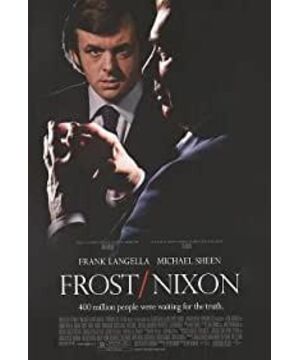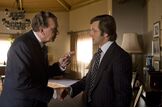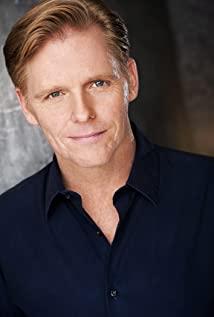When Nixon finally admitted on camera that he was "overstepping his authority" and "sorry to the American people," Ron Howard served his purpose, because he clearly thought the next Bush would see the film, and The president who dragged America into two wars should also apologize to America and the world.
American audiences may worship David Frost as an idol. In the Youtube message board about the Nixon talk show, some netizens even proposed to fund David Frost to conduct an exclusive interview with George W. Bush. It seems that this is due to the similarity between the two presidents. First, both Bush and Nixon were "belligerents" who, while making wealth for the capitalists, damaged the moral image of the United States in the world, and also caused a large number of soldier casualties and financial expenses; then the "Watergate Incident" Exposing the black gold transactions and black-box operations in Nixon's political career, although there is currently no report on George W. Bush's illegal and ultra vires, it is undeniable that the war helped him to be re-elected. Who can be sure that there is nothing tricky in it?
Ron Howard, who has directed "A Beautiful Mind" and "The Iron Fist Man", can be described as a master of Hollywood biopic films. The smooth narrative and deep digging of the characters' souls are the biggest highlights of the film. Although the film revolves around Nixon and Foster, two people with very different positions, the "dual narrative" has a clear context. The audience not only appreciates the spiritual journey of the first resigned president in American history, but also feels Foster as a talk show. The host's wit and courage. What is particularly impressive is the film's psychological depiction of Nixon, which not only has its psychological transformation from arrogance to a confessor, but also truly records the loneliness and helplessness under the inner conflict of the president who "made a mistake". Among them, Nixon and Foster A dialogue in which he was thought-provoking, he asked the talk show host painfully: Why is it that I am not popular with the public no matter what I do? Wouldn't things be better if we switched identities?
The "Watergate Incident" epitomized the weakness of politicians. To put it bluntly, they were all puppets manipulated by capitalists and ideology. Even if Nixon slapped Bush Jr., it would only make the disaffected people feel relieved temporarily. But what about later? Will Obama be better than his predecessor? Perhaps, Howard just wanted Americans not to let Bush Jr go too easily.
View more about Frost/Nixon reviews











